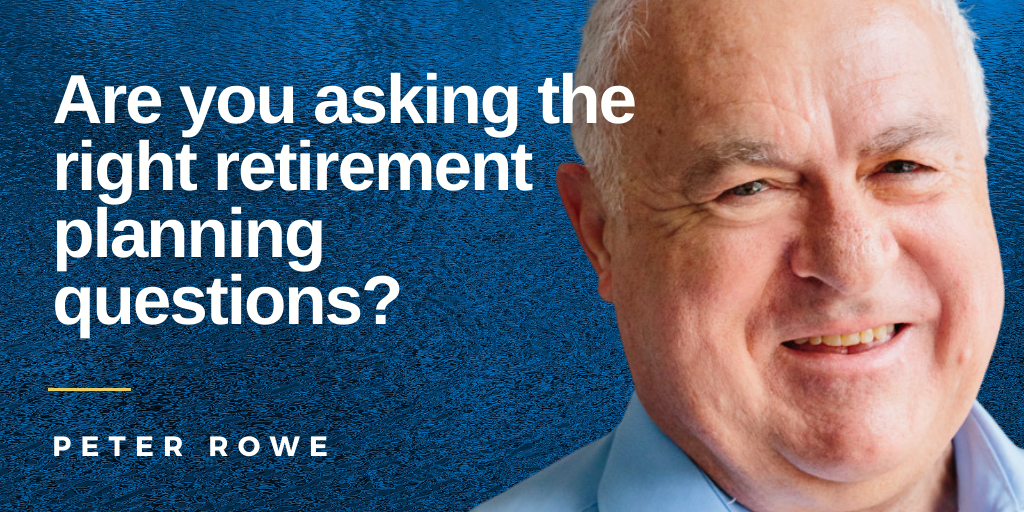
The question most often asked when considering retirement is “How much money will I need?” But is this the right question?
What will your retirement look like?
The first question should be what lifestyle you want to have when you retire. How to achieve this comes later.
Planning what you want to do in retirement may mean using a staged approach. For example, it is highly likely that the early years of your retirement will be the most active, able to travel more, play sports, enjoy more activities. As you get older, it’s likely you will slow down and the more active pursuits, or the number of these, may no longer be possible.
How long will you live?
This then leads to another important question -how long you are likely to live? Everyone wants to enjoy a long life, but nobody wants to get old.
Unfortunately, most people underestimate how long they will live. Often the only guide they have is how long their parents or grandparents lived. However, this is not a statistically strong link or indication. Sometimes they refer to the Australian Life Tables that talk about life expectancy. Both of these references are flawed. Life expectancy in Australia has been increasing for over 100 years. The other problem is that the tables include everybody who dies, whether it be young or old or those who never worked and not just retirees. Those who make it to retirement after working most of their lives and generally in better health are more likely to live for a much longer period. In any event, the life expectancy figures are an average, so at least 50% of people of a certain age and sex will live longer – sometimes much longer.
What income will you need?
Your retirement plan is just a guide as to what you would like to do, whether it be travel, new sports or hobbies, volunteering or even getting a new part time job. But at least start by thinking about what you would like to do as you will need some indication of the income you will need. Not what lump sum, but what income to cover your planned expenses.
What is the best possible lifestyle that you can afford with the maximum income you can have each year, that will last for the rest of your life and roughly keep pace with inflation?
This is the starting point, after which you can think about how you get that income and how it can last for last for as long as you (and your partner) live.
Why the focus on income?
Most people who have been in the workforce rely on a regular income. You know what your regular pay is, and you live accordingly. Why should retirement be so different? Focussing on how much lump sum you have is a whole different way of thinking. You need to think about how you can draw down on your savings, how to invest it and how to make it last. Too many people either spend too much or gift money to their children or charity, and then only have the Age Pension to fall back on. Alternatively, they spend too little and die leaving money to their beneficiaries.
Unfortunately, this thinking is driven by how Australia’s superannuation guarantee system works. In simple terms, it operates as follows:
- you contribute a percentage of your salary,
- the contributions are invested by the super fund,
- you retire and can access the lump sum that has accumulated with interest (often by drawing down on the lump sum until it runs out via an Account based pension).
However, the way this thinking has evolved is counter intuitive to what we should be asking ourselves.
When you retire, you still need an income to live on. The focus needs to be on the income rather than the lump sum. But the big lump sum is the number that grabs the headline – just like winning a lottery – except that it is your money.
Once you are retired there is no new job to go to. You need to be thinking about how long you will live and the need for a regular income to live off.
What should your finances look like?
You will need the lump sum to secure the best income you can, but your planning should be about your lifestyle and how to maximise a secure lifetime income (including any Age Pension) to support that lifestyle. Focussing on how much lump sum you will need as the first question is not the best way to decide what your retirement lifestyle will look like if you do not have security of income.
Once you work out your plans for what you want to do for the rest of your life and the income you will then need, the next step is to focus on how you can get a secure income with the money you have that will provide you the best possible lifestyle you can afford over your whole lifetime and not just until the money runs out.
With a lifetime income when you retire, you will be more comfortable knowing that you can spend your income, knowing that it will not run out. By all means still have a lump sum set aside for emergencies, extra luxuries or even to leave a bequest to your children, but do not rely on that to be your only source of income, and not run out.
Ideally, your retirement finances should involve a mix between a regular lifetime income, easy access to some capital and you may also want to leave a bequest, apart from your home and other assets apart from superannuation.
What should you focus on?
While the lump sum may be a useful guide, “how much” is not the first question to ask when planning your retirement.
The following steps may help you plan better:
- Define and plan your lifestyle,
- Think about how long you will live (rather than just use a flawed average) as no-one is average,
- Work out how much income you need each year, taking inflation into account
- Calculate the lump sum you need to get a secure lifetime retirement income
- Think about how much capital you want to be able to access
- If you want to leave a bequest, and
- What products will enable you to achieve your best possible retirement.
Happy planning.
Peter Rowe

